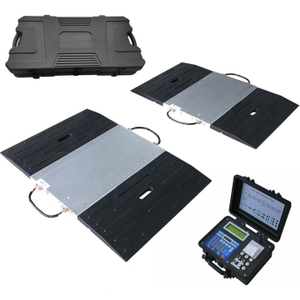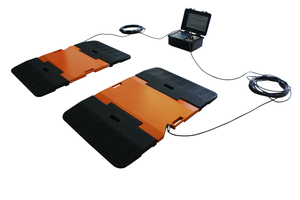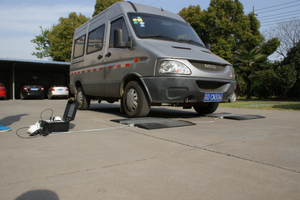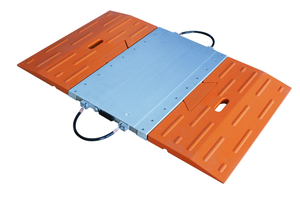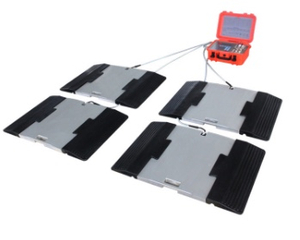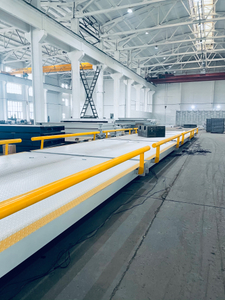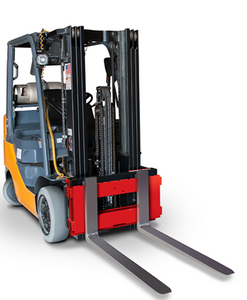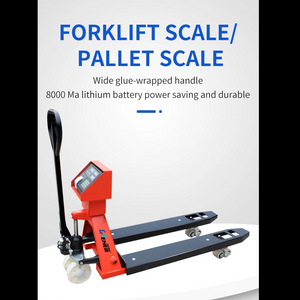When selecting a truck scale for your operations, you will likely consider two main options: portable scales and fixed scales. Each type serves different business needs, and understanding their differences will help you make the best choice for your specific situation.
This article explains the key features of portable and fixed truck scales in clear terms, helping you determine which solution aligns with your weighing requirements, budget, and operational setup.
Understanding Fixed Truck Scales The Permanent Weighing Solution
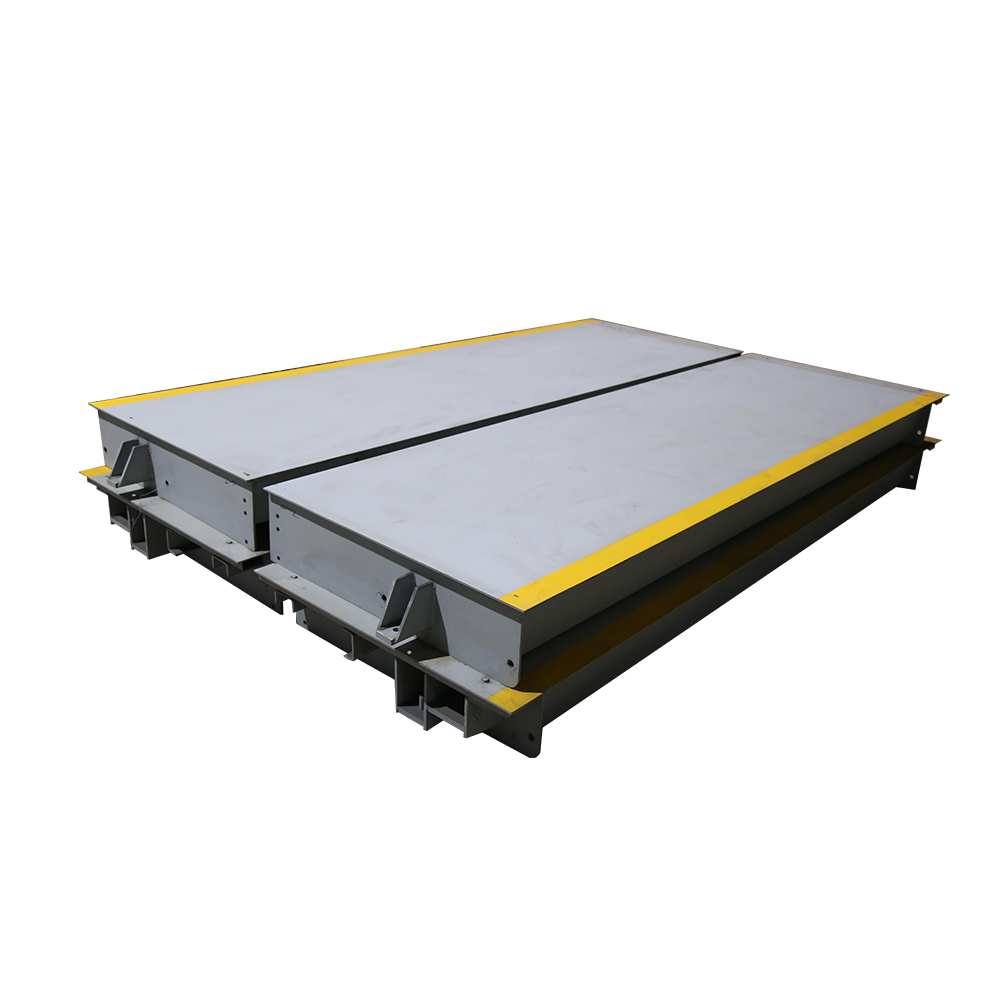 Fixed truck scales are installed permanently at a location, typically embedded in concrete or built on a solid foundation. These scales are designed for long-term use at a single site where frequent and accurate weighing of heavy loads is necessary.
Fixed truck scales are installed permanently at a location, typically embedded in concrete or built on a solid foundation. These scales are designed for long-term use at a single site where frequent and accurate weighing of heavy loads is necessary.
Fixed scales work best for businesses that need to weigh trucks every day at the same location. Industries such as mining, large manufacturing plants, and waste management facilities commonly use fixed scales because they provide consistent and precise measurements over many years.
The main advantage of fixed scales is their high accuracy and durability. They can handle very heavy loads, often up to 200 tons or more, and remain stable for decades with proper maintenance. However, installing a fixed scale requires significant preparation, including construction work to prepare the site. This process can take several weeks or even months and involves higher upfront costs compared to portable options.
Another consideration is that fixed scales cannot be moved once installed. If your business relocates or needs to weigh trucks in different areas, a fixed scale may not be the most practical choice.
Exploring Portable Truck Scales The Flexible Alternative

Portable truck scales offer a versatile weighing solution for businesses that need mobility or temporary setups. These scales consist of modular components that can be assembled and disassembled quickly, allowing them to be transported and used in multiple locations as needed.
Portable scales are ideal for industries with changing operational sites, such as agriculture, construction, and logistics. For example, farms that weigh harvests at different fields or construction companies that move between job sites can benefit from the flexibility of portable scales. Setting up a portable scale takes just a few hours, and no construction work is required beyond ensuring a level surface.
While portable scales are convenient and cost-effective, they generally have lower weight capacities compared to fixed scales, typically maxing out around 100 tons. Their accuracy, while sufficient for many applications, may not meet the strictest legal trade standards required in some industries. Additionally, portable scales may need more frequent calibration and maintenance due to their exposure to varying environmental conditions.
Key Factors to Consider When Choosing Between Portable and Fixed Scales
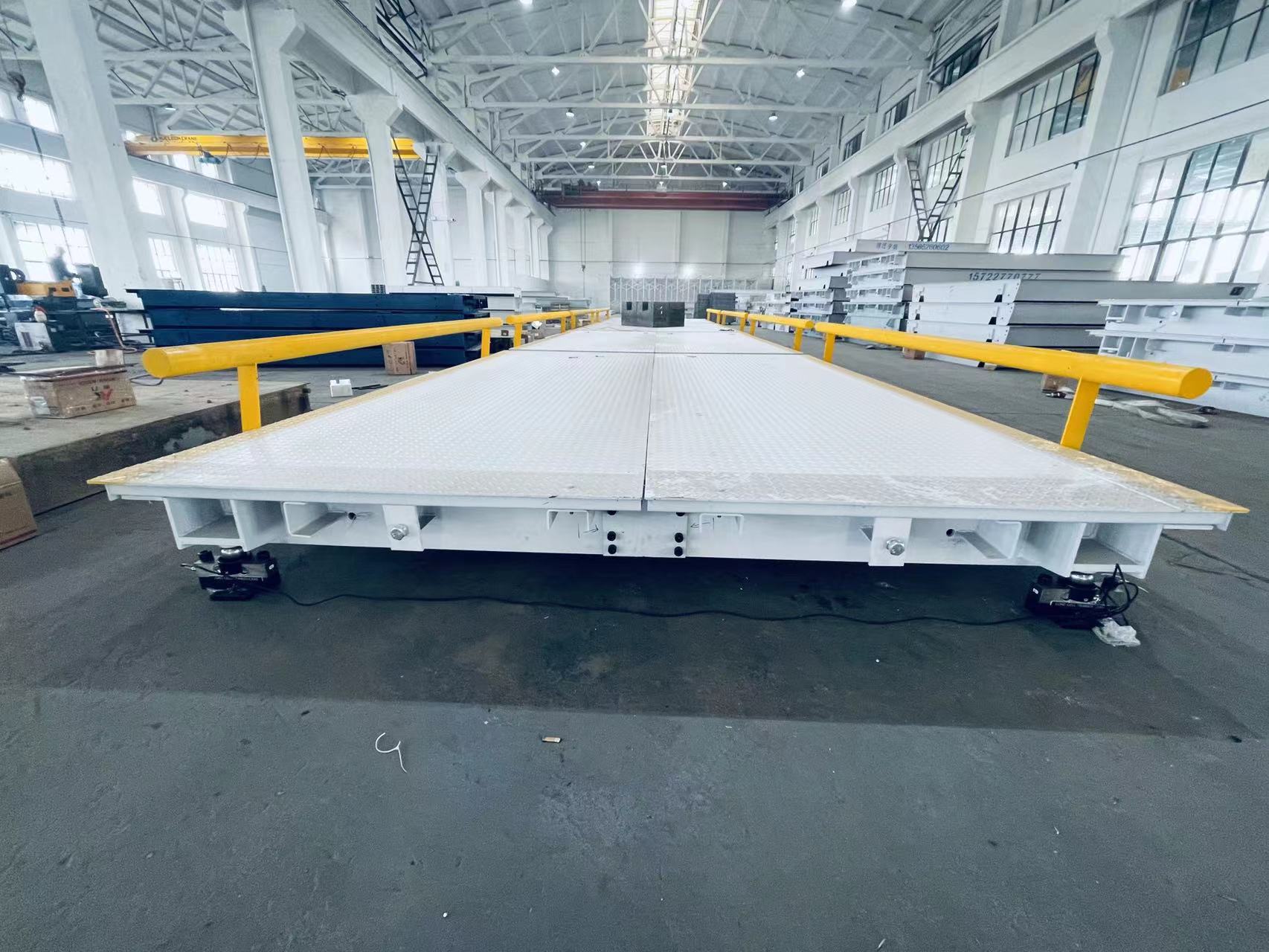 To determine whether a portable or fixed truck scale is right for your business, consider the following questions:
To determine whether a portable or fixed truck scale is right for your business, consider the following questions:
First, think about how often you need to move the scale. If your operations require weighing trucks in multiple locations, a portable scale is likely the better option. If all weighing will occur at a single, permanent site, a fixed scale may be more suitable.
Next, evaluate the level of accuracy required. Industries that need highly precise measurements for legal or commercial transactions often require fixed scales. For less critical applications where approximate weights are acceptable, portable scales can provide sufficient accuracy at a lower cost.
Budget is another important factor. Fixed scales involve higher initial expenses due to installation and construction costs, while portable scales offer a more affordable upfront investment. However, over time, fixed scales may prove more cost-effective for high-volume operations due to their durability and lower maintenance needs.
Finally, consider the volume of trucks you need to weigh daily. Fixed scales are built to handle constant, heavy use, making them ideal for facilities with frequent weigh-ins. Portable scales are better suited for operations with lighter or intermittent weighing needs.
Real-World Applications of Portable and Fixed Scales
In the 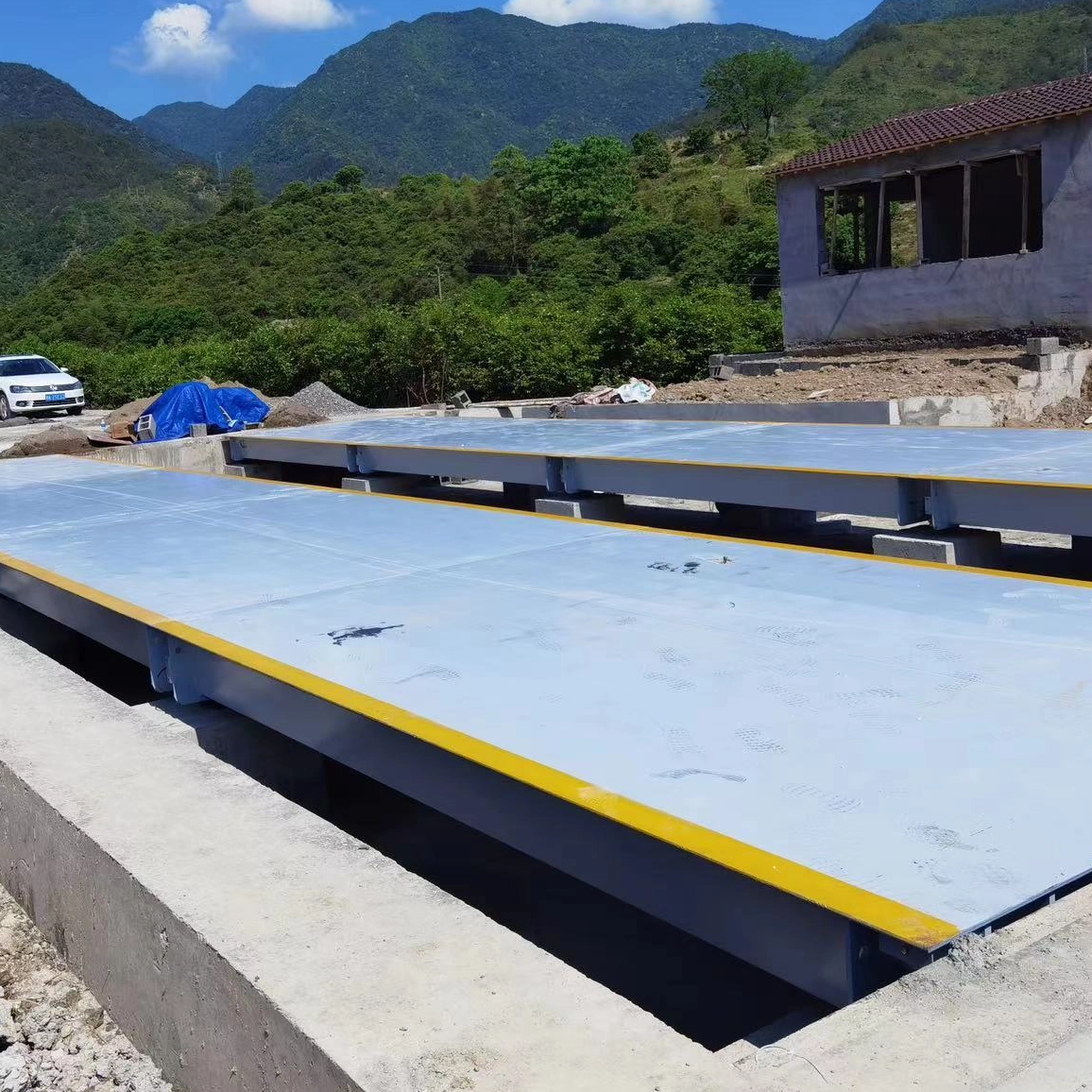 mining industry, fixed scales are commonly used because they provide the precision and durability needed for weighing large loads of extracted materials. A mining operation in Canada, for example, might rely on a fixed scale to measure tons of ore transported daily from the site.
mining industry, fixed scales are commonly used because they provide the precision and durability needed for weighing large loads of extracted materials. A mining operation in Canada, for example, might rely on a fixed scale to measure tons of ore transported daily from the site.
On the other hand, a farming cooperative in Brazil might use portable scales to weigh crops at different collection points during harvest season. The ability to move the scale between locations allows for efficient operations without the need for permanent installations at each site.
Construction companies also frequently use portable scales to monitor the weight of materials delivered to various job sites. Once a project is completed, the scales can be packed up and moved to the next location.
Making the Final Decision
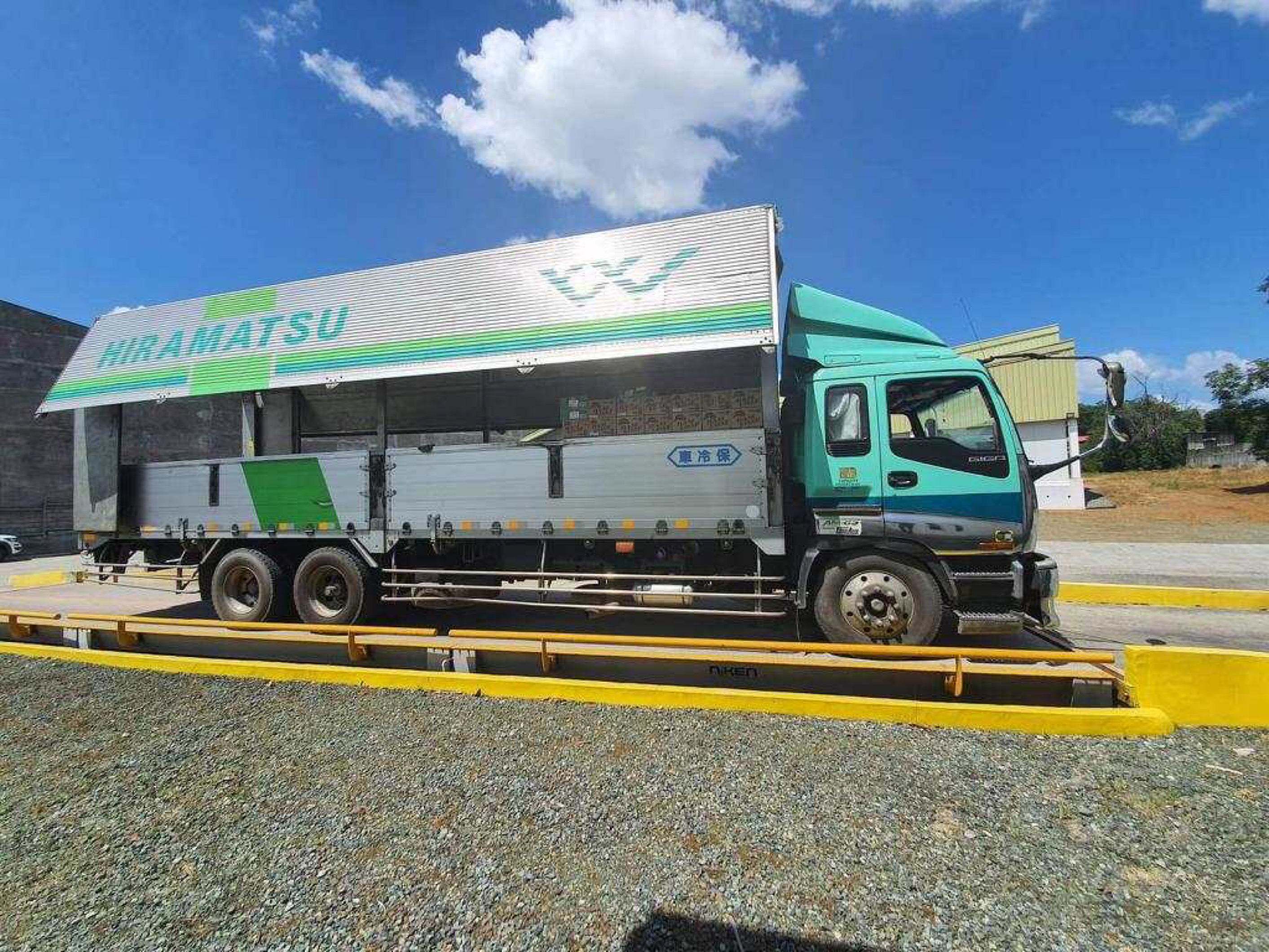
Choosing between a portable and fixed truck scale depends on your specific business needs. Fixed scales offer unmatched accuracy and longevity for permanent, high-volume operations, while portable scales provide flexibility and cost savings for businesses with changing locations or temporary weighing requirements.
If you are still uncertain which type of scale is right for you, consulting with a reputable supplier can provide valuable guidance. They can assess your operational needs and recommend the best solution to ensure accurate, efficient, and cost-effective weighing for your business.
This straightforward comparison highlights the essential differences between portable and fixed truck scales, helping you make an informed decision tailored to your business requirements.
English
العربية
Français
Русский
Español
Português
Deutsch
italiano
Nederlands
Tiếng Việt
ไทย
Polski
Türkçe
ភាសាខ្មែរ
Bahasa Melayu
Filipino
Bahasa Indonesia
Română
Čeština
Монгол
қазақ
Српски
हिन्दी
Slovenčina
Slovenščina
Norsk
Svenska
Ελληνικά
Suomi
Հայերեն
Latine
Dansk
Shqip
Hrvatski
Afrikaans
Gaeilge
Eesti keel
Oʻzbekcha
latviešu
Azərbaycan dili
Беларуская мова
Български
ქართული
guarani
Кыргызча
Lietuvių
Македонски
Malti
Soomaali
Тоҷикӣ
Türkmençe

 Fixed
Fixed
 To determine whether a portable or fixed
To determine whether a portable or fixed  mining industry, fixed
mining industry, fixed 
